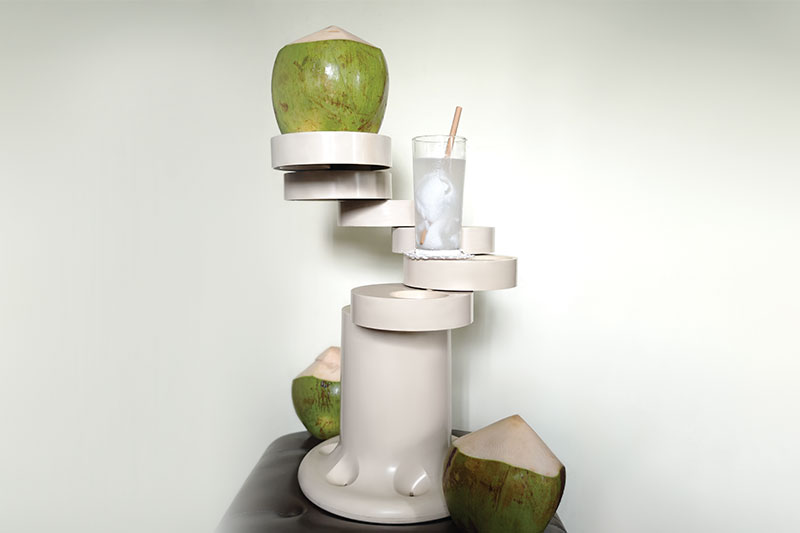
Thai Cuisine’s Secret Weapon
From refreshing drinks to creamy curries, the humble coconut adds power to every dish it touches
Words: Ariya Chaiyarit
Photo & Style: Rinrin Intravijit
The coconut is more than just a delicious treat in Thailand: It’s a cornerstone of the kingdom’s heavenly cuisine.
Known as “Maphrao” in Thai, this versatile fruit originated in South and Southeast Asia before drifting on the ocean currents to the Indonesian and Polynesian islands. Now, coconut trees grace the coasts of most tropical countries, offering not just beauty but also a bounty of culinary possibilities.
The simplest way to enjoy coconut is when it’s young. Just crack open the shell to discover refreshing water and lusciously tender flesh.
However, in Thai kitchens, the coconut goes far beyond a snack. Young coconuts lend their sweet juice and soft flesh to a wealth of delectable desserts and drinks. Choose from Woon Maphrao (coconut jelly), fragrant coconut cake, Khao Niao Piak (sweet sticky rice pudding) and Nam Maphrao Pan Nom Sot to irresistible coconut milk smoothies.
As the coconut matures, its flesh becomes firmer – perfect for adding textural delight to other Thai desserts. Grated coconut serves as a topping or filling in sweet treats like Khanom Baa Bin (traditional coconut pancake).
Mature coconuts have the thickest, hardest flesh and boast an intensely nutty taste. This makes them ideal for making the coconut milk or cream used in countless Thai curries and puddings.
The fascinating Macapuno or Maphrao Kathi variety of coconut comes packed to the brim with jelly-like flesh. Relatively rare, this variety is prized for its role in delectable dishes like Ruam Mit (Thai iced dessert), thaptim Krob (with water chestnut in coconut milk) and Maphrao Kaew (sweet dried coconut).
The coconut also holds a special place in Thai culture beyond its culinary significance. Symbolising resilience and strength, with its hard outer shell protecting the sweet fragrant water inside, the coconut is considered an auspicious fruit. Coconut water, cherished for its purity, plays a key role in various rituals and ceremonies.
So next time you see a coconut, remember it’s not just a fruit but also a symbol of Thailand’s rich cuisine and culture.
